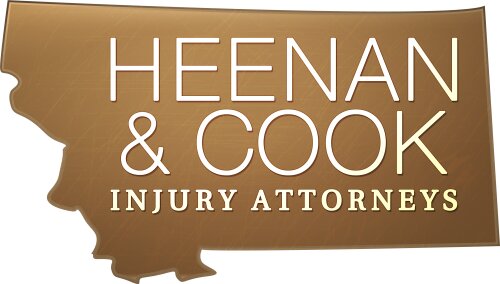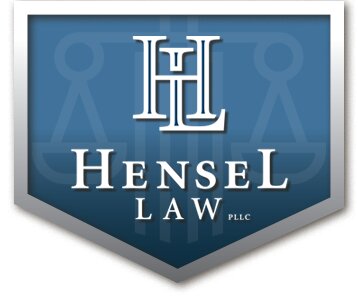Best Bad Faith Insurance Lawyers in Billings
Share your needs with us, get contacted by law firms.
Free. Takes 2 min.
List of the best lawyers in Billings, United States
1. About Bad Faith Insurance Law in Billings, United States
Bad faith insurance law protects policyholders when an insurer mishandles a legitimate claim. In Billings, as in the rest of Montana, you have rights against insurers who deny, delay, or underpay benefits without a reasonable basis. The core idea is to require fair handling of claims and honest communications from the insurer.
Legal standards in Montana recognize the duty of good faith and fair dealing in insurance contracts. When an insurer acts contrary to that duty, a policyholder may have a viable bad faith claim in addition to pursuing the underlying claim. This can include improper claim investigation, misrepresentation of policy terms, or insistence on unreasonable settlement practices.
For residents of Billings, it is important to understand that bad faith issues can arise in homeowner, auto, health, and commercial policies. Local weather, infrastructure, and property risks make timely and accurate claim handling especially critical after hail storms, fast-moving weather events, or fire-related incidents. A careful assessment of your policy and the insurer’s conduct is often the first step toward meaningful compensation.
In Montana, malice or unreasonable misconduct by an insurer in denying or delaying coverage can support a bad faith claim alongside the contract claim. This framework is overseen by state regulators and interpreted by courts when disputes arise.
Sources: Montana Department of Insurance (regulatory guidance and complaint processes) and Montana Legislature (statutes governing unfair claim practices).
Key reference points for Billings residents seeking formal information on rules and procedures include the Montana Department of Insurance and the state legislature for the precise text of unfair claim practices.
Source: Montana Department of Insurance, and Montana Legislature.
2. Why You May Need a Lawyer
Bad faith disputes often involve complex fact patterns and nuanced legal standards. An attorney who handles Bad Faith Insurance claims can help you evaluate whether the insurer’s conduct crosses the line from ordinary denial to actionable bad faith in Montana.
Here are concrete, real-world scenarios you might encounter in Billings that commonly require legal counsel:
- Your homeowner claim for hail damage is accepted for only a fraction of the repair costs, and the insurer cites depreciation or policy exclusions to justify the shortfall. A lawyer can review whether conditions and coverage were properly interpreted and whether the denial was reasonable.
- The insurer acknowledges your claim but delays payment for months without updating you or requesting necessary documents in a timely way. Proving bad faith often hinges on whether the delay was purposeful or egregious and whether there was timely communication.
- A vehicle collision results in total-loss settlement, but the insurer uses salvage values or depreciation schemes that underpay you. An attorney can challenge the method and push for full, policy-appropriate compensation.
- Your medical or health insurance denies a covered procedure after an accident, despite medical necessity and prior authorization. This may involve complex interpretation of policy language and medical necessity standards, which a lawyer can contest.
- A commercial property policy denies a claim for business interruption or equipment damage without a clear, documented basis, while you provide complete supporting materials. Legal counsel can help demand a fair review and pursue remedies if the denial is improper.
- Your policy is canceled or nonrenewed after you file a claim, and the insurer attributes the cancellation to nonpayment unrelated to the claim. A legal review can determine whether the action was retaliatory or unlawful under Montana law.
Each of these scenarios involves specific facts, policy language, and regulatory standards. An attorney can help collect evidence, communicate with the insurer, and pursue appropriate remedies in and out of court.
Source: NAIC and Montana Department of Insurance.
3. Local Laws Overview
Montana regulates bad faith and unfair claim handling primarily through statutory provisions. The core framework is found in Montana Code Annotated Title 33, Chapter 18, which addresses Unfair Insurance Practices. This statute governs insurer conduct in processing and settling claims, including misrepresentation, unreasonable delays, and improper denial of benefits.
The Montana Department of Insurance administers these rules in practice and provides guidance to consumers about filing complaints and seeking remedies for unfair claim handling. Insurers operating in Billings must comply with these requirements and respond to regulators who investigate complaints.
Recent regulatory emphasis in Montana tends to focus on prompt claim handling, clear communication with claimants, and transparent documentation of claim decisions. These priorities reflect ongoing consumer protection efforts and are administered at the state level by the Department of Insurance with input from the legislature.
For authoritative text and current enforcement details, consult the following official sources:
- Montana Code Annotated Title 33, Chapter 18 - Unfair Insurance Practices. See the text on the official Montana Legislature site.
- Montana Department of Insurance - Consumer resources and complaint procedures for bad faith claims.
- National Association of Insurance Commissioners - Unfair Claims Practices Model and market conduct information.
Sources: Montana Legislature, Montana Department of Insurance, and NAIC.
4. Frequently Asked Questions
What is bad faith insurance in Montana?
Bad faith insurance involves an insurer handling a claim in a way that is unfair or unreasonable under the policy and the law. It includes denial, delay, or underpayment without a legitimate basis. Many factors determine whether bad faith occurred, including timing, communications, and the insurer’s investigation practices.
What is the process to file a complaint with the Montana Department of Insurance?
First, gather your claim details and any communications from the insurer. Then file a formal consumer complaint with the Montana Department of Insurance. The regulator will review the complaint and may investigate the insurer's practices. You can monitor the status through the department's consumer portal.
How long does it take an insurer to respond to a claim in Billings?
Response times vary by policy and claim type, but prompt handling is required by state guidance. If you experience excessive delays without reasonable justification, this can support a bad faith claim. You should document dates and attempts to contact the insurer.
Do I need an attorney to pursue bad faith insurance claims?
While you can pursue disputes directly with insurers, many Billings residents seek legal counsel to interpret policy language, gather evidence, and navigate regulators or court proceedings. An attorney can improve the likelihood of a fair settlement or successful litigation.
Can I sue for bad faith after a denial or underpayment?
Yes. A successful bad faith claim typically requires showing that the insurer acted unreasonably or dishonestly in handling the claim, beyond a mere denial. An attorney can evaluate the facts and help determine eligibility for a lawsuit.
What is the difference between denial and bad faith denial?
A denial is a legitimate policy interpretation or decision. A bad faith denial lacks a reasonable basis, is arbitrary, or involves deception or misrepresentation. The latter may support a separate bad faith claim in court.
How much can I recover in a Montana bad faith claim?
Damages vary with the case and may include compensatory damages for losses caused by the insurer's misconduct, and in some circumstances, attorney fees. An attorney can estimate potential remedies based on your facts and the policy terms.
Do I have to pay legal fees if I sue for bad faith?
In many Montana cases, prevailing party rules apply or statutory remedies may cover reasonable attorney fees. Your attorney can explain fee arrangements, including contingent fee options where applicable.
What is the timeline to bring a bad faith lawsuit in Montana?
Timelines depend on the statute of limitations for contract and tort claims, along with any regulatory complaint periods. A local attorney can provide a precise timeline based on your situation and the court schedule.
Do I need to prove intentional misconduct for bad faith?
No. Montana law generally requires showing unreasonable or unfair handling, not necessarily intentional malice. A strong case often rests on evidence of improper delay, misrepresentation, or failure to investigate properly.
Can I settle with my insurer without filing suit?
Settlements are possible at any stage. A lawyer can negotiate to maximize a fair settlement and avoid costly litigation, while ensuring all policy terms and conditions are properly addressed.
5. Additional Resources
Access to reliable information can support you in navigating bad faith claims. The following official resources provide guidance on regulation, consumer rights, and dispute resolution:
- Montana Department of Insurance - Regulatory authority over insurance companies, consumer complaint process, and guidance on fair claim handling. https://doi.mt.gov
- Montana Legislature - Official text of statutes governing unfair insurance practices and related insurance law. https://leg.mt.gov
- National Association of Insurance Commissioners (NAIC) - Model rules, consumer guides, and market conduct resources about unfair claim practices. https://www.naic.org
6. Next Steps
- Collect and organize all claim-related documents, including policy, receipts, adjuster notes, emails, and phone logs. Create a timeline of events from the date of loss to the present.
- Clarify the specific policy provisions at issue and identify any misrepresentations or delays by the insurer. Note dates and communications for your records.
- Confirm the applicable Montana statute of limitations for your claim and whether a regulator complaint is appropriate first. Check with the Montana Department of Insurance for guidance.
- Consult a local Billings attorney specializing in bad faith insurance claims for a no-cost or low-cost evaluation. Bring all documentation for a comprehensive review.
- Develop a litigation or settlement strategy with your attorney, including a demand letter to the insurer and a potential timeline for filing a lawsuit if needed.
- File a formal complaint with the Montana Department of Insurance if the insurer remains unresponsive or acts unfairly. Track regulator deadlines and responses carefully.
- Prepare for potential litigation by compiling expert opinions, appraisals, and additional evidence to support your bad faith claim. Your attorney will coordinate discovery and negotiations.
Lawzana helps you find the best lawyers and law firms in Billings through a curated and pre-screened list of qualified legal professionals. Our platform offers rankings and detailed profiles of attorneys and law firms, allowing you to compare based on practice areas, including Bad Faith Insurance, experience, and client feedback.
Each profile includes a description of the firm's areas of practice, client reviews, team members and partners, year of establishment, spoken languages, office locations, contact information, social media presence, and any published articles or resources. Most firms on our platform speak English and are experienced in both local and international legal matters.
Get a quote from top-rated law firms in Billings, United States — quickly, securely, and without unnecessary hassle.
Disclaimer:
The information provided on this page is for general informational purposes only and does not constitute legal advice. While we strive to ensure the accuracy and relevance of the content, legal information may change over time, and interpretations of the law can vary. You should always consult with a qualified legal professional for advice specific to your situation.
We disclaim all liability for actions taken or not taken based on the content of this page. If you believe any information is incorrect or outdated, please contact us, and we will review and update it where appropriate.









